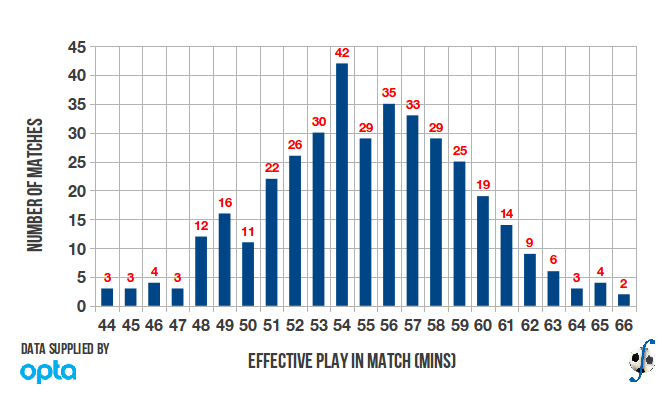Eboue
nasty little twerp with crazy bitter-man opinions
Because it's not that hard? I don't know why you are getting hung up on the details. It happens in other sports already without issue.
Cheers, some interesting stuff there.

That's even worse than I thought.
How about holding his arm up in the air showing the watch, like he does when players are time-wasting now? There's plenty of clear signals that could be used. Why don't refs in other sports forget it? Of course there'd be loads of situations at first, but once the refs become used to it it's not different from raising one arm in the air to indicate indirect-freekick or any other hand signal.What signal would that be? And why wouldn't the ref forget to make that signal half the time?
Just make it two 30-35 minute halfs instead. We'd quickly get rid of everyone being injured all the time.If that's what he meant to suggest, then sure that's possible. In that case though, if you stopped the clock every time the ball wasn't in play, football matches would last way, way longer than now.
The effective playing time in football is around 55-60 minutes. Matches would last more than two and a half hours including half-time.
That's easy enough to sort out if the refs grow a set of balls.I think the main issue is the inconsistency of the time added on and the complete disregard for added time within the added time period. There is absolutely no consistency whatsoever.
Do pitches have to be flat? No, and even Premier League pitches can have a Tapir, to allow for drainage and to make the pitch bigger within the confines of the stadium. I think.

In US junior lacrosse you often get a choice of "stop time" or "running time". With running time the clock is only stopped for injuries or time-outs of one sort or another. With stop time the clock is stopped whenever play stops - ball out of play, goal scored, etc. - and restarts when play resumes. Typically a game will be either four 12 minute quarters with running time or four 8 minute quarters with stop time - that's consistent with the stats for PL games that were quoted earlier. For stop time there's an off-field time keeper with a clock and a horn - the horn blows when time runs out. The official doesn't signal when the clock should be stopped or started - that's the time keeper's job. Running time is usually kept on the field by the referee. If we really want to go to "stop time", then games would need to be reduced to two 30 minute halves - given that, they would average out to be about the same length as they are now.
